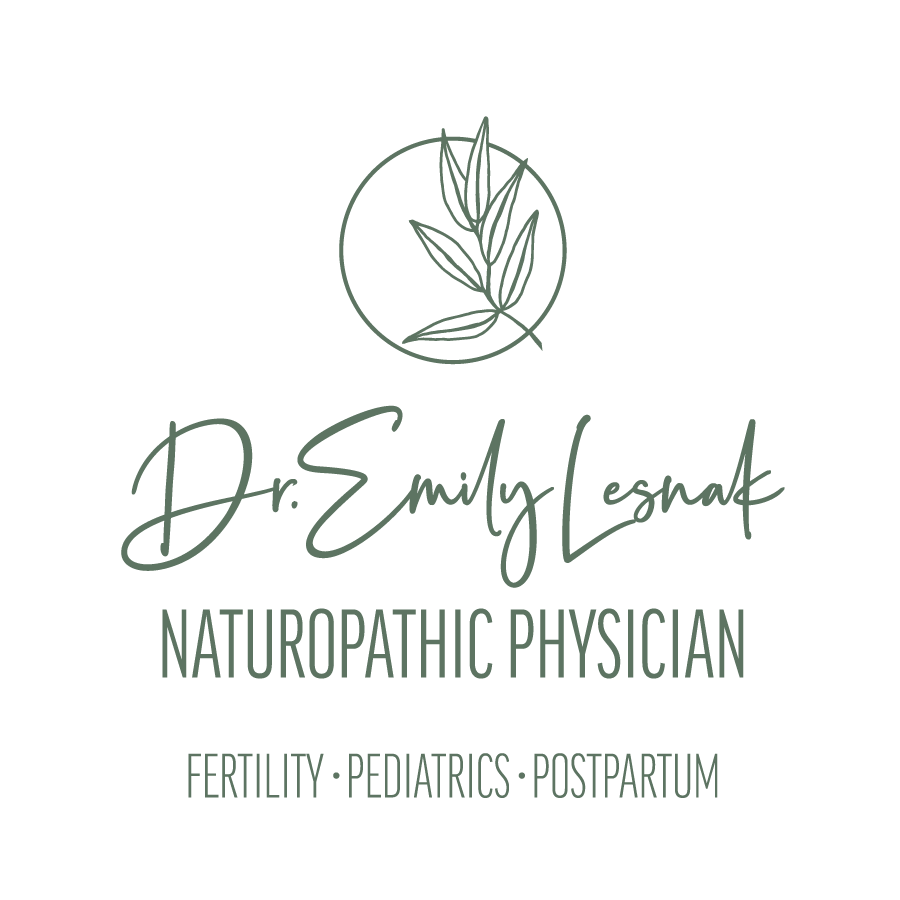Probiotics are “good” bacteria or microorganisms that live in and on our bodies. We actually have more bacteria living in us than we do cells! Probiotics live in our digestive tract and perform a number of functions like helping us digest food and communicating with our immune system to fend off bad bacteria.
I routinely recommend probiotics to pregnant women that I see in my practice because they offer so many benefits to mom and baby. Probiotics are naturally found in fermented foods like yogurt, sauerkraut (my favorite!), kimchi, kombucha, and kefir. I encourage eating these fermented foods, but I find that a probiotic supplement is more therapeutic.
Here are my top 5 reasons for probiotic use in pregnancy:
1. Immune system support: for mom and baby!
Microorganisms in the digestive tract communicate with the immune system. Any microorganism can send signals to the immune system, but probiotics or the “good” bacteria will send a signal that decrease inflammatory actions of the immune system. Generally speaking, inflammation promotes swelling, histamine release (think itchy eyes or itchy rash), and increased mucus production. At times, inflammation is necessary (like with an acute wound), but it is not something that we want to be exposed to 24/7.
Taking probiotics during pregnancy can promote anti-inflammatory actions of the immune system and can help to support the immune system during pregnancy. Research has also shown that a probiotic supplement during pregnancy increases good immune cells in breast milk that are passed on to baby during breastfeeding. This helps to establish a good range of healthy bacteria in baby’s developing digestive tract.
2. Prevent atopic dermatitis (eczema) and food sensitivity in infants
Atopic dermatitis is a common type of rash in infants and children. This rash can be itchy and can cause discomfort in some children. Taking probiotics during and after pregnancy has been shown to prevent both eczema and food sensitivities in infants. There are a few ways that these good bacteria can be transferred to babies – mom’s body will have good amounts of helpful bacteria that will be passed to baby during a vaginal delivery and the increased immune cells in mom’s breast milk from taking a probiotic will be passed on to baby.
Establishing a balance of good bacteria in an infant’s digestive tract is the very first way that their immune system will be stimulated. Training the body to resist inflammation will help to prevent atopic dermatitis and food sensitivities.
3. Decrease risk of asthma in children
Similar to how probiotics decrease the risk of eczema and food sensitivities, probiotics can also decrease the risk of asthma. The health of the digestive tract can influence breathing issues like asthma because of how the bacteria communicates with the immune system. Not only do microorganisms line the digestive tract, but they also line all of the body’s mucus membranes, including nasal passages and the respiratory tract. The microorganisms in the respiratory tract can decrease asthma risk, which is another good reason to take probiotics during pregnancy.
4. Decrease fussiness in infants
What new parent doesn’t want to decrease fussiness in their newborn? Establishing good bacteria in a newborn’s digestive tract has been shown to decrease crying. Newborns generally go through a period of gassiness that eventually improves with age. Probiotics are one of the comfort measures that I recommend for baby, but if mom takes a probiotic during pregnancy, then it is more likely that baby will be less fussy during the first few of months of life.
5. Healthy weight gain for mom
It natural that a woman will gain weight during her pregnancy and risk of elevated blood sugar and blood pressure levels usually accompany this weight gain. Probiotics taken during pregnancy can help the body to metabolize insulin. Insulin’s job is to remove sugar from the blood stream and subsequently helps to decrease blood sugar levels. Taking a probiotic during pregnancy has also been shown to decrease “bad” cholesterol (LDL) and decrease total cholesterol. Probiotics can do some amazing things!
Probiotics are a great supplement to take during pregnancy, as well as regularly eating foods that naturally contain good bacteria. Read more about making your own probiotic rich foods here.
References:
Baldassaree, M, A Mauro, P Mastromarino, M Fanelli, D Martinelli, F Urbano, D Capobianco, N Laforgia. Administration of a multi-strain probiotic product in the perinatal period differentially affects the breast milk cytokine profile and may have beneficial effects on neonatal gastrointestinal functional symptoms, a randomized clinical trial. Nutrients. 2016 (8)677-690.
Barthow, C, et al. The probiotics in pregnancy study (PiP Study): rationale and design of a double-blind randomized controlled trial to improve maternal health during pregnancy and prevent infant eczema and allergy. Pregnancy and Childbrith. 2016 16:133-147.
Jamilian, M, F Bahmani, Z Vahedpoor, A Salmani, M Tajabadi-Ebrahimi, P Jafari, S Hashemi, Z Asemi. Effects of probiotic supplementation on metabolic status in pregnant women: a randomized, double-blind, placebo-controlled trial. Archives of Iranian Medicine. 2016 19(10)687-692.
Partty, A, L Lehtonen, M Kalliomakim S Salminen, E Isolauri. Probiotic lactobacillus rhamnosus GG therapy and microbiological programming in infantile colic: randomized, controlled trial. Pediatric Research. 2015 78(4)470-475.
Zhang, G, H Hu, C Liu, Q Zhang, S Shakya, Z Li. Probiotics for prevention of atopy and food hypersensitivity in early childhood. Medicine. 2016 95(8)1-10.





